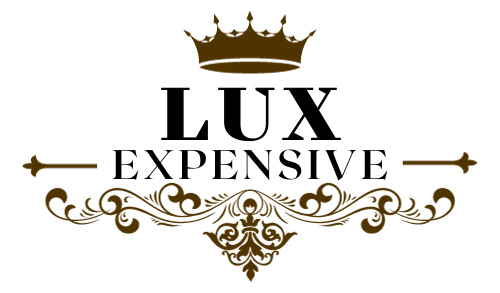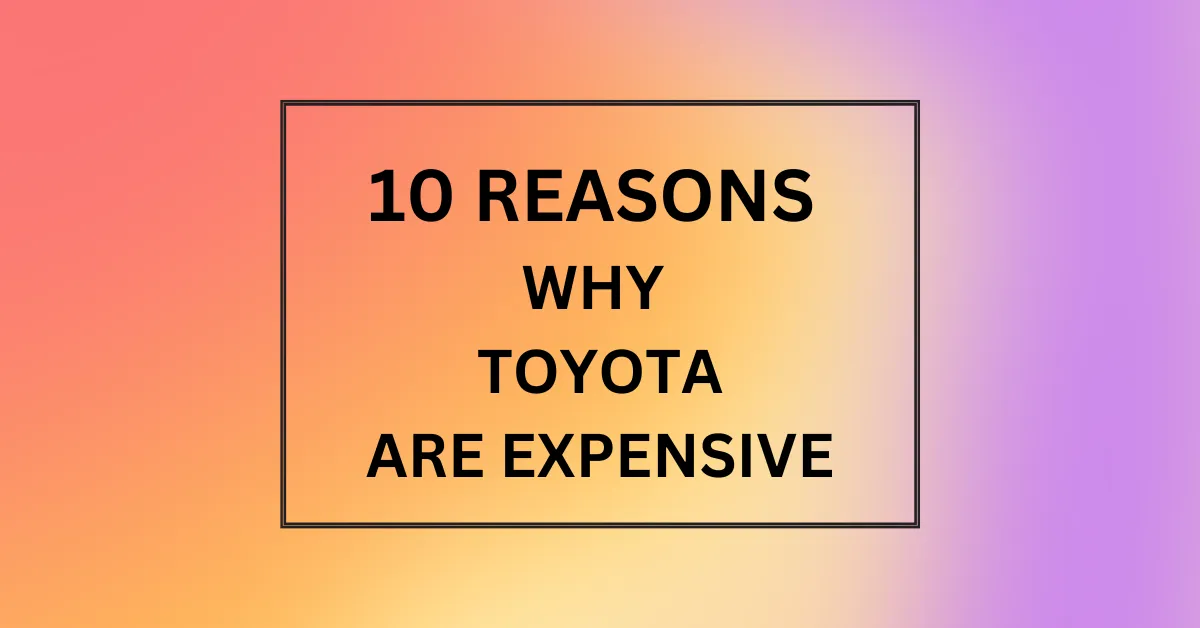Toyotas are expensive because they invest heavily in innovation and technology, maintain extremely high quality standards in manufacturing, and prioritize advanced safety features and luxury details. Their reputation for reliability and strong resale value also allows Toyota to charge more for vehicles that consumers continue to highly demand.
Well, there are a few factors that contribute to the higher cost of Toyota vehicles. As we’ll explore, you are paying for things like cutting-edge technology, safety systems, high-quality materials, and precision engineering. Toyota’s commitment to continuous improvement, luxury features, and holding onto value also ramp up costs. While the sticker shock may be jarring, there are some compelling reasons why Toyotas command steeper prices.
Top 10 Reasons Why Are Toyotas So Expensive
1. Why Toyotas Cost More: They Invest Heavily in Innovation and Tech
Toyota pours tons of money into developing new technologies, features, and vehicle advancements. As one of the market leaders, Toyota wants to keep ahead of the curve.
So when you see touchscreen interfaces, parking assist functions, collision avoidance tech, and hybrid drivetrains rolling out ahead of the competition – that innovation isn’t free.
Toyota invests billions in R&D to perfect things like dynamic radar cruise control, pre-collision systems, and hydrogen fuel cells. The financial commitment to stay on the cutting-edge gets passed onto buyers.
2. Uncompromising Quality Standards Drive Up Manufacturing Expenses
Toyota also spends lavishly on meticulous engineering and assembly processes. They are fanatical about quality control. From concept to production, Toyota vehicles undergo rigorous testing and inspections at every step.
Plant workflows are optimized to catch and correct the smallest defects. This obsession with craftsmanship and upholding rigorous quality standards isn’t cheap! But the care put into vehicle construction does inspire confidence and commands a premium price tag.
3. Safety Tech and Features are State-of-the-Art
One major area where Toyota strives for continuous improvement is safety systems. They aim to rapidly develop and implement the latest accident avoidance and protective features. Cutting-edge standard tech like Toyota Safety Sense bundles together advanced capabilities that used to be optional upgrades.
Of course, engineering sophisticated systems like pre-collision braking/pedestrian detection/lane keeping assist is an immense undertaking. But that commitment to driver/passenger security contributes to loftier sticker prices.
4. Interiors Flaunt Premium, Luxury Touches
Peek inside Toyota cabins and you’ll often spot upscale finishes that rival luxury makes. Soft-touch dash materials, faux leather accents, and double stitching pamper drivers. Bells and whistles like heated/cooled seats, ambient lighting, panoramic sunroofs, and multi-zone climate control coddle passengers.
Though Toyota maintains its reputation for reliability and function-over-flash, they understand buyers want more refinement and comfort. Pushing standard features to mimic luxury models in mainstream vehicles like the Camry or Highlander ratchets up manufacturing costs.
5. Resale Value Stays Strong on the Used Market
Toyotas are notoriously capable of racking up high mileage without issues. And that legendary long-term dependability keeps used Toyota values very strong relative to other brands. Owners can expect to recoup 50-70% of original MSRP even after 5-6 years of driving.
By retaining value so well, Toyotas end up costing less than rivals over the total ownership period. Even if that Toyota sticker shock sets in initially, chances are you’ll make back much more down the road. So Toyota’s command higher new prices knowing their cars and trucks hold value better through years of reliable service.
6. Reputation for Reliability Lets Toyota Ask More
Part of the reason Toyotas maintain value so well in the resale arena ties back to their sterling reputation for durability. Toyota has spent decades honing manufacturing processes, engineering benchmarks, and winning over buyers with cars and trucks that stand the test of time.
Other automakers still aspire to mimic Toyota’s consistency and high standards. When consumers have faith they are purchasing a reliable vehicle, they also tend to tolerate higher asking prices. Toyota has earned customer trust – so they can justify commanding more money.
7. High Consumer Demand Allows for Pricing Power
Alongsimilar lines, Toyota sedans, SUVs, trucks and hybrids simply enjoy alleviated consumer demand compared to competitors. Despite the cost, car shoppers keep snapping up Camrys, RAV4s, and other hot sellers in droves.
Toyota haswon over buyers by perfecting the basics and proven modelsacross model years, creating an aura of “can’t go wrong” credibility.
As long as desirability and loyalty remains so steadfast, Toyota can get away with bumping prices upwards. Consumers demonstrate they are willing to pay extra for the Toyota badge.
8. Non-Negotiable Pricing Strategy Maintains Profit Margins
You also may have noticed Toyota dealerships tend to stick closer to MSRP versus domestic counterparts. Where some rivals engage in heated haggling and bidding wars, Toyota adopted a “no haggle” approach years ago. This fixed, non-negotiable pricing strategy allows less flexibility to talk down the cost.
While no one likesfeeling barred from negotiating a better deal, the policy does let Toyota protect margins. And Toyota feels justified asking buyers to accept set prices – take it or leave it – given their esteemed reputation.
9. Lineup Offers More Hybrids/EVs With Sophisticated Components
Toyota also invests tremendously in rapidly evolving hybrid and electric vehicletechnology. Components needed to engineer gas/electric powertrains,regenerative braking systems, and lithium battery packs add complexity and costs.
As Toyota expands adoption of this sophisticated technology across its lineup quicker than rivals, the long-term R&D and production expenses get baked into rising sticker prices. Yet the improved fuel economy and low emissions from hybrids like the Prius help offset higher asking prices for eco-conscious buyers.
10. Toyota Can Afford Lower Profit Margins Per Vehicle
Some industry insiders argue Toyota vehicles aren’t actually that much more money to manufacturethan direct competitors. However, Toyota targets slightly lower per-unit profit margins on some models.
Theymake up the difference by selling vastly more volume globally. So while profit per individual vehicle may be less than other automakers, Toyota moves a staggering quantity of metal around the world. This advantage allows Toyota to rake in earnings with thinner margins while still asking buyers to shell out more per vehicle.
Is Toyotas a Good Brand?
Yes, Toyota is considered one of the most reliable, durable, and high-quality automotive brands, known for making long-lasting vehicles with strong resale value.
Are Toyotas Good?
Toyotas are very good – they consistently earn high praise and owner satisfaction for their safety, performance, comfort, and ability to rack up high mileage with minimal issues.
Are Toyotas Worth the Price?
While Toyotas may have higher sticker prices than competitors, they tend to be worth it due to lower maintenance costs, better fuel efficiency, higher resale value, and strong long-term dependability.
Where to Buy Toyotas?
Toyotas can be purchased at authorized Toyota dealerships nationwide, though internet sales are increasingly common as well for easier price comparisons between dealers and negotiating leverage.

